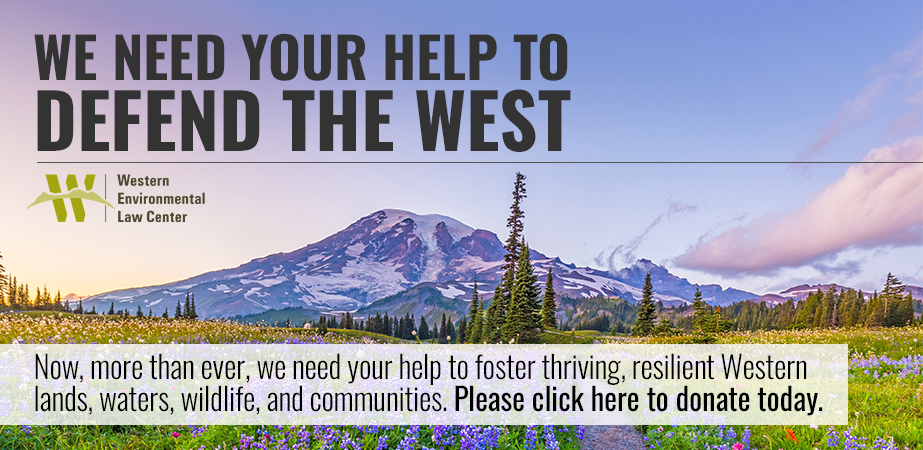Thirteen western U.S. groups have provided the Bureau of Land Management (the Bureau) a roadmap to ensure the agency’s proposal to strengthen public lands conservation succeeds. The Bureau holds the authority and responsibility to conserve public lands in the public interest, but for decades, the agency has favored extractive uses to an extreme degree, as exemplified by the 90% of public lands deemed available for oil and gas leasing.
“With this rulemaking, the Bureau holds an immense opportunity to position public lands as a cornerstone of federal climate action and conservation in the Western U.S.,” said Erik Schlenker-Goodrich, executive director of the Western Environmental Law Center. “To that promise, we’ve provided recommendations to strengthen the rule’s capacity to provide tangible, on-the-ground protections for the lands and issues that Westerners care about, from climate action to land, water, and wildlife protection. These recommendations build on the petition for rulemaking that we submitted to the Bureau last year on behalf of 30 groups. We urge the Bureau to take our full set of recommendations seriously.”
The groups offering comments on the Bureau’s proposed rule commend the agency’s focus on ecosystem resilience and the protection of intact landscapes as a sensible, science-based, and legally well-founded expression of the agency’s authority and responsibility.
The proposed rule intends to place conservation on equal footing with extractive uses. However, the proposed rule needs much stronger and more explicit guardrails to achieve its objective of ecosystem resilience, in particular given the entrenched role of certain public lands uses such as fossil fuels development.
While the proposal mentions environmental justice, the Bureau must center this principle as a pillar of this new era of public lands management. The groups offer several ways to accomplish this fundamental goal including recommending the Bureau acknowledge the close tie between resilient ecosystems and environmental justice. Indigenous and frontline communities’ relationships to public lands are foundational to their well-being.
In addition, the Bureau’s proposal may prove a prospective foil to the Supreme Court’s aggressive actions to erode the long-settled authorities of agencies such as the Environmental Protection Agency to protect the environment. The Bureau holds distinctive and independent constitutional power to conserve public lands and protect the environment from harmful public lands uses.
“The proposed rule is an opportunity for the Bureau to flex its considerable but under-used power,” said Schlenker-Goodrich. “This power can underpin a modernized approach to public lands management that benefits the public interest by accounting for the interwoven climate and biodiversity crises and taking action that helps further a just transition for frontline and Indigenous communities.”
Contact:
Erik Schlenker-Goodrich, Western Environmental Law Center, 575-770-1295, gro.w1751607975alnre1751607975tsew@1751607975gskir1751607975e1751607975

